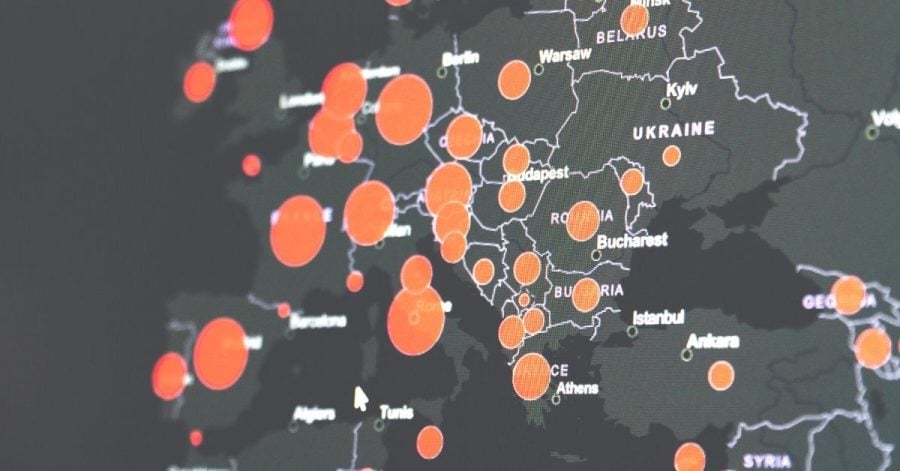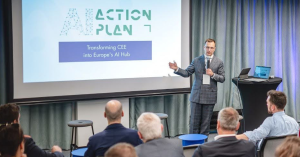The future of innovation and research in Central, Eastern and Southeast Europe requires the elaboration and development of a common regional framework to guide progress and stimulate the exchange of good practices. This was at the center of a meeting of the Parliamentary Committee of the Central European Initiative (CEI), which took place on May 16-17 at the National Assembly of the Republic of Bulgaria.
The Central European Initiative is a regional intergovernmental forum of 17 Member States in the region that fosters European integration and sustainable development through regional cooperation.
Fostering cross-border research and innovation in the CEI region was at the heart of the discussion.
“Given that national funds often stop at the border, different strategies to finance joint cross-border actions are needed”, says one of the organizers MEng. Denitsa Simeonova, a social entrepreneur and a Member of the Bulgarian Parliament.
The conference hosted representatives from Albania, Bosnia and Herzegovina, Bulgaria, Croatia, the Czech Republic, Hungary, Italy, North Macedonia, Moldova, Montenegro, Poland, Romania, and Ukraine.
The 13 participating delegations explored the options for creating a research infrastructure and accelerating innovation delivery in the region. The goal is to reduce regional burdens, pool resources and achieve a greater impact on sustainable development.
The Minister of Innovation and Growth of Bulgaria Daniel Lorer addressed them in the beginning by stressing the geopolitical importance of Bulgaria in attracting investments and in stimulating entrepreneurial activities. He highlighted the necessity for better coordination between science and business.
Linking innovation research to the needs of the economy
The key challenges that the delegations outlined during the Central European Initiative meeting were related to the low levels of funding for research; poor development of venture capital; insufficiency of ethical and people-oriented research, and of developments in intellectual property.
The priorities that the discussion positioned were related to the elaboration of a strategy for eradicating poverty; the investment in academic research and innovation; the sustainable building of bridges between societies and policies for boosting the outcomes of regional and international efforts.
- Mr. Ivan Ćelić from Croatia shared that their country envisions to encourage commerciality of innovation and development of innovative activities of companies.
- Mr. Marco Maggioni from Italy reiterated the role of science in tackling global challenges. He appealed to parliamentary committees that they ensure the meeting’s outcomes become priorities for each member state involved.
- Mrs. Tamara Vujovic from Montenegro presented the country’s advancements in normative and institutional matters of support for early startup development and for cross-border research. Among the examples were the establishment of a Council for innovation that stimulates state-level, local-level, and business-level officials to cooperate strategically and the creation of a registry on innovation activities online.
- Mr. Arben Ziberi from North Macedonia talked about their Fund for innovation that co-finances more than 600 projects and 3 accelerators.
- Mrs. Rozlia-Ibolya Biro from Romania insisted on intensifying the dialogue and exchange of good practices among CEI members in order to develop an economy based on the sustainable development goals.
- Mr. Yevgenii Brahar from Ukraine expressed gratitude for the CEI members’ efforts in accepting Ukrainian refugees. He requested more investment into Ukraine for the development of innovation and research, and offered to share Ukrainian advancements in this sector with CEI members.
Outcomes for sustainable future
One of the main outcomes of the Central European Initiative conference was the issuing of a Joint Statement. The 13 participating countries will present the recommendations to their national assemblies and governments.
“The document invites member states of the CEI to create new legislation that stimulates the development of innovative startups and calls on them to enhance the mobility of researchers and the free flow of knowledge”, MEng. Simeonova explains.
Bulgaria has proposed to host a new regional event – “CEI Innovates Summit”, which will bring together leaders in the CEI innovation ecosystem with notable EU technocrats, researchers, and investors. Another suggestion made by Ned Dervenkov from the Bulgarian Startup Association (BESCO) was the establishment of a CEE Startup Association, which can address the specific needs of innovative companies in the region.







